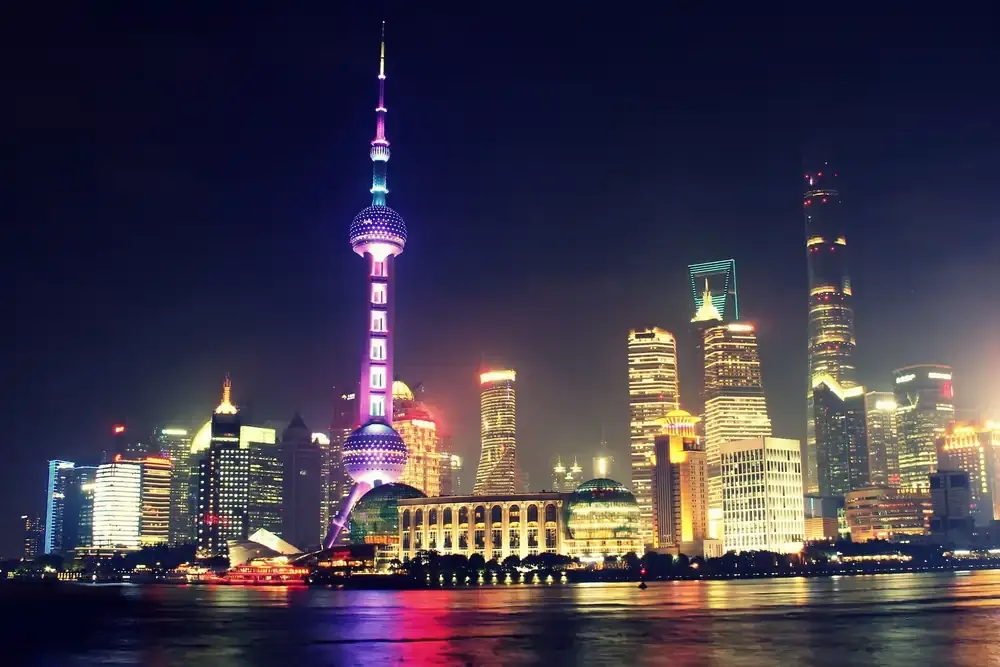travel hacks
Social Media in China 2025: A Tourist’s Guide to eSIMs, VPNs, & the Great Firewall
A practical guide for tourists in 2025 to stay connected in China — from VPNs and eSIMs to roaming and essential Chinese apps like WeChat and Douyin.
TL;DR: Tourists can access social media in China, but most popular Western platforms such as Facebook, Instagram, and WhatsApp are blocked by the Great Firewall. The most reliable methods involve using travel eSIMs, international roaming, or a VPN (downloaded before arrival).

China’s Great Firewall: What Tourists Need to Know
China operates one of the world’s most sophisticated internet censorship systems, commonly known as the Great Firewall. This nationwide filter blocks access to many Western websites and applications, including Facebook, Instagram, X (formerly Twitter), YouTube, WhatsApp, and all Google services.
For tourists, this means your usual digital routine will be disrupted unless you prepare in advance. Understanding the restrictions is the first step. The second is planning how to bypass them with the right mix of VPNs, eSIMs, or roaming.
If you’re new to eSIMs, our detailed primer on what an eSIM is should give you a good understanding of how it works.
Best Connectivity Options in China: eSIM, International Roaming, VPN
Staying connected in China requires strategy. Simply landing and switching on your phone won’t guarantee access to your favorite apps. Here are the most practical options:
Travel eSIM
A travel eSIM lets you purchase and activate an international data plan before departure, ensuring connectivity the moment you arrive. This is often more convenient than buying a local SIM, and more reliable than VPNs alone. Need more convincing? Here are more reasons why you should use an eSIM for your travels.
Nomad eSIM offers plans designed for China, with coverage that lets you stay online and continue using your favorite apps without hassle. If it’s your first time setting one up, our How to Install eSIM guide walks you through the process step by step. And if you’re concerned about data protection, our article explains why eSIMs are considered more secure than traditional SIM cards.
For travelers hopping between multiple destinations in Asia (e.g., China + Japan + Korea), consider a regional eSIM for Asia to avoid juggling multiple local SIMs.
💡 Many travelers also want to keep their home number active for calls and SMS. With dual SIM support on iPhone and Android, you can run your home SIM and Nomad eSIM together, the best of both worlds.
International Roaming
Roaming data can be a useful backup. In many cases, your internet traffic is routed through your home country’s network, bypassing the Great Firewall and giving you direct access to blocked platforms without a VPN.
However, roaming can be costly, especially for data-heavy social apps like Instagram and YouTube. Before relying on this option, compare it with alternatives in our guide to roaming vs travel eSIM vs local SIM.
💡 Check out our data-saving tips to minimize roaming costs.
The VPN Solution: Your Gateway to Global Internet
A Virtual Private Network (VPN) is the most well-known method for bypassing the Great Firewall. A VPN encrypts your internet traffic and routes it through servers outside China, letting you access blocked social media, email, and news.
While VPNs work for many travelers, their performance can vary. The Chinese government regularly cracks down on providers, so even reputable paid VPNs may experience slower speeds or connection drops. Having multiple VPN apps installed, combined with an eSIM as a backup, ensures you won’t be left completely offline.
💡 Crucial Tip: Download and install your VPN before you arrive in China. Once inside, VPN websites and app stores are heavily restricted, making installation nearly impossible.
Top Chinese Social Media Apps for Tourists
Even with VPNs, roaming, or eSIMs, tourists in China will benefit from embracing local apps. China’s digital ecosystem is vast, and some apps are essential for daily life.
- WeChat (微信): China’s indispensable “super app” for messaging, calls, social feeds (Moments), and payments. Setting it up before you travel is highly recommended.
- Douyin (抖音): The Chinese version of TikTok, with vibrant short-form video content.
- Xiaohongshu (小红书 - Little Red Book): A lifestyle and e-commerce platform popular for fashion, travel, and reviews.
- Weibo (微博): A microblogging network (similar to X/Twitter) for trending news and public discussion.
💡 If you’re managing multiple devices on your trip, Nomad eSIMs allow tethering and hotspot use, so you can share data across your phone, tablet, or laptop while using these apps.
Conclusion: Stay Connected, Stay Informed
Navigating China’s internet restrictions as a tourist can be challenging, but manageable with the right tools. By understanding the Great Firewall, and preparing beforehand, you can ensure uninterrupted access to both your favorite Western apps and essential local services like WeChat.
Plan ahead for a smooth trip - check out Nomad’s China eSIM for reliable access to your favorite social media, often without the need for a separate VPN.
FAQs: Social Media and Connectivity in China
Can I use Facebook, Instagram, and WhatsApp in China?
No, popular Western platforms are blocked by the Great Firewall. You’ll need a VPN or use roaming/eSIM services.
Do VPNs always work in China?
Not always. VPN performance can vary due to government crackdowns. Install multiple options before arrival.
Is WeChat the only app I need in China?
WeChat is essential for messaging, payments, and daily tasks, but Douyin, Xiaohongshu, and Weibo are also worth downloading.
Can I use my regular phone number and data plan in China?
Yes, if your carrier offers roaming. Alternatively, a Nomad travel eSIM provides flexibility and may bypass restrictions.
What are the best local alternatives to Western social media?
WeChat, Douyin, Xiaohongshu, and Weibo dominate China’s digital ecosystem.



